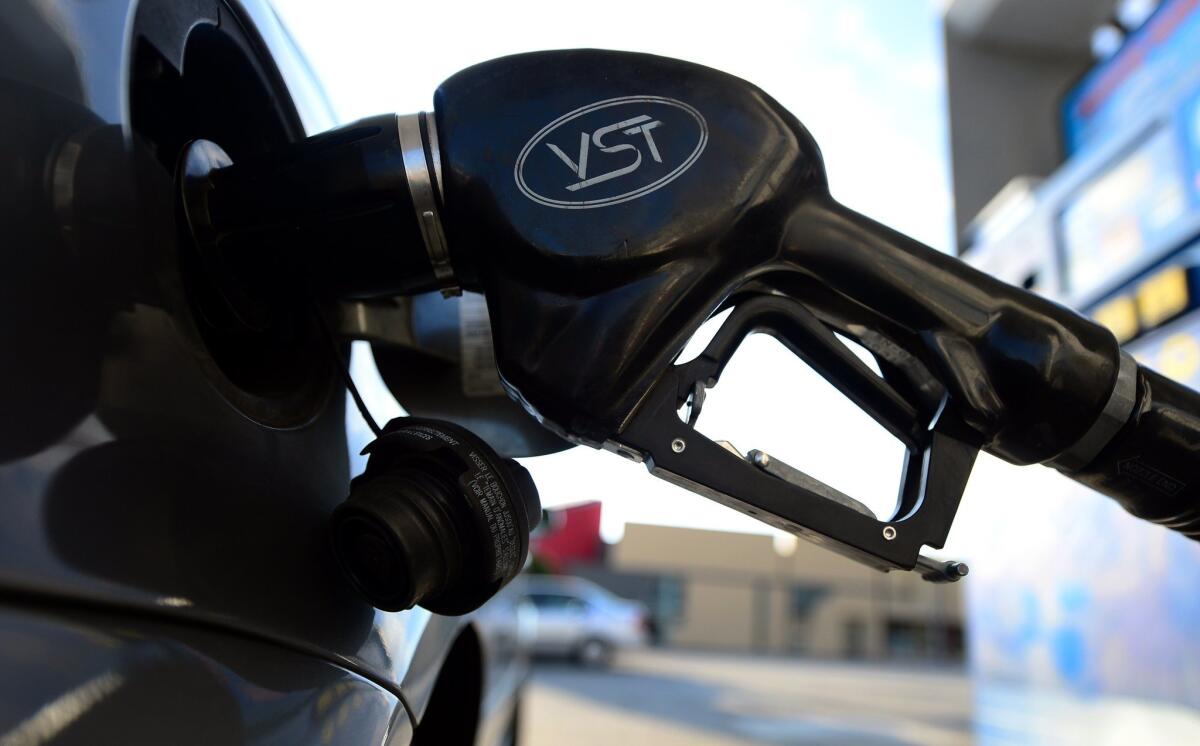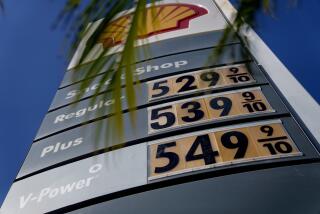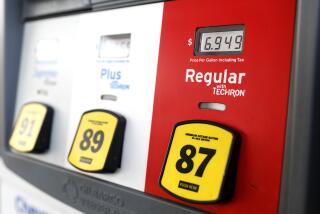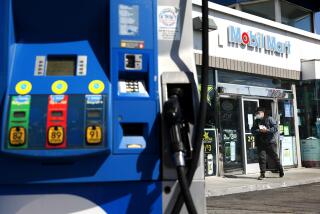Op-Ed: A higher gasoline tax would throttle back economic growth

Falling gasoline prices — are they good or bad?
Ask any American consumer and the answer will be a resounding “good.” Gas prices have dropped by more than a dollar in the last three months. This translates into a de facto tax cut of at least $125 billion, equivalent to 2.4 million middle-class family incomes. For the average family, the savings this year could be $750 or more. The middle class hasn’t seen comparable economic relief in years.
Apparently some politicians in Washington think that’s bad. They have concocted a scheme to undo that tax cut by slapping higher taxes on gasoline.
The list of tax-happy politicians is growing longer by the day. In Congress, both Democrats and usually anti-tax Republicans have lined up in support of a higher gas tax, arguing that it could fund any number of big-ticket items on Congress’ to-do list. They’ve been joined by prominent pundits on both sides of the aisle. Their proposals vary, with some ranging from 10 or 20 cents to a dollar or more per gallon.
Yet no gas tax increase, big or small, should be on the table. There are many reasons it is a terrible idea for the American consumer.
First, higher gas prices mean higher prices on goods. Groceries, clothes, electronics, manufactured goods are all mainly transported to your local store via truck. So when gas prices go up, so does the cost of transporting those goods. This invariably leads to higher prices, not just at the pump but at every stop on your daily or weekly errand runs.
It isn’t just consumers who think that lower gas prices are good. Economists agree as well. Lower gas prices mean more economic growth. When you and I have more money to spend — which we do right now, thanks to falling gas prices — we usually spend it. That’s why economists now predict that lower gas prices could add as much as half a percentage point of growth to the economy this year. A gas tax would only stymie or prevent those gains.
Moreover, such growth would create jobs and opportunities in the years to come, the keys to a strong and lasting economic recovery. No wonder the chief executive of Caterpillar has said that falling gas prices are creating “the kind of stimulus package that the Federal Reserve or Congress could never do.”
Lower gas prices help the middle class and the poor most of all. The middle class spends more on gasoline than any other income group. Households with less than $50,000 in income spend, on average, a fifth of their wages on energy. Falling gas prices thus directly leads to more disposable income for the people who need it most. Those savings are even more noteworthy when you consider that family income is still lower than it was six years ago. Now, thanks to falling gas prices, the middle class and the poor finally have more money in their pockets.
Why would Congress jeopardize these gains with a higher gas tax? The most frequently repeated reason is that it would restore fiscal solvency to the Highway Trust Fund, which has been steadily losing money for years. But a higher tax isn’t the solution to this problem. Instead, Congress should direct the trust fund’s money to be spent solely on highways, rather than on the plethora of non-highway projects that it currently funds. If Congress made this simple change, the fund’s financial problems would be all but fixed overnight; it would be 98% solvent.
Surely our politicians should reorder their own spending priorities before slapping higher taxes on the rest of us. They’ve spent the last six years over-regulating and over-taxing the economy, thereby preventing the recovery that the American people were promised but largely haven’t seen. Now that falling gas prices are contributing to real growth, politicians in Washington should take their foot off the gas tax pedal.
Tim Phillips is the president of Americans for Prosperity.
Follow the Opinion section on Twitter @latimesopinion
More to Read
Start your day right
Sign up for Essential California for news, features and recommendations from the L.A. Times and beyond in your inbox six days a week.
You may occasionally receive promotional content from the Los Angeles Times.






